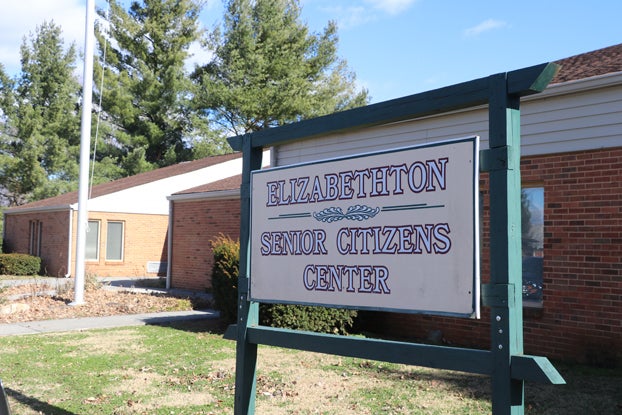Local progress noted from ‘Read to be Ready’
Published 4:28 pm Wednesday, January 31, 2018

- Photo Courtesy of Elizabethton City Schools Tennessee Education Commissioner Dr. Candice McQueen, front, speaks with Elizabethton City Schools instructors during a visit with First Lady Crissy Haslam in April 2017.
Progress continues to be shown from the Tennessee Department of Education’s statewide reading initiative.
Education officials recently revealed an executive summary highlighting elementary grades in reading across the state as officials look to achieve their goal of having 75 percent of the third graders in the state on reading level by 2025 due to the initiative — “Read to be Ready.”
Highlights from the report, issued by Education Commissioner Dr. Candice McQueen, include:
• From the first year of feedback from our new assessments, we see that students perform relatively well in the areas of listening comprehension, vocabulary, and language, but struggle with reading comprehension, foundational skills, fluency, and writing.
• The state’s Read to be Ready summer camps for thousands of at-risk students continue to show success. On average, students saw improvements in their grade level reading accuracy and comprehension, as well as on a measure of their motivation to read. Qualitative data also points to increased engagement from teachers and students and their families.
• We see that teachers are implementing the new standards and incorporating crucial strategies such as interactive read aloud and shared reading. However, while students are successfully completing classroom tasks, the tasks rarely reflect the demands of the standards. Findings point to three key areas for instructional improvement in the coming year: 1) higher-quality and appropriately complex texts selected to build conceptual knowledge, 2) question sequences and tasks that build critical thinking skills and meet the demands of the standards, and 3) systematic and explicit foundational skills instruction with opportunities to practice through reading and writing.
• Teachers are enthusiastic about the focus we have on reading, but some are uneasy about the time it can take to do it well.
“Every child deserves to have an effective teacher every year that ensures they learn to read,” McQueen said in an email statement to the Elizabethton Star. “We have made initial progress in setting new expectations and supporting this goal by providing training, resources and supports while also identifying areas of challenge that we are beginning to address. The hard work needed to make these changes in practice will take time, but we are committed to doing all we can to promote strong literacy practices across Tennessee.”
Elizabethton City Schools is doing their part with the program thanks in part to a second round of “Camp Read-A-Lot” around the bend for students. ECS received a grant from the department for a second straight year to offer reading opportunities for academically “at-risk” students who may encounter a “summer slide” when it comes to books. School representatives officially made the announcement of their second installment with the program in December.
“It was such an incredible experience last year,” Julie Hartsook, first grade teacher at West Side, recently told the Elizabethton Star. “This year’s grant process was a lot more competitive with other school systems applying for the funding. We want to thank the State for this opportunity and for them allowing us to continue to build off the success from last year.”
ECS was one of the 212 school systems awarded the grant for the 2017 school year. Now with 2018 funding in the bag, the district will utilize $34,400 to go toward reading material and other activities to encourage students to steer clear from the “summer slide” of reading.
For the newest grant cycle, the State awarded approximately $8,860,000 worth of funding to 203 schools across the state.
Dr. Corey Gardenhour, ECS director of schools, recently commended the efforts of Hartsook, Dr. Myra Newman and Public Relations Coordinator Bekah Price for their work in securing the grant for a second straight year.
Since the installation of Read to Be Ready in the school district, officials have noted an increase in productivity.
According to information provided by ECS, 100 percent of K-3 teachers are served by a total of four reading coaches. One school also reported less than 7 percent of students in regular education qualified for Tier 2 or Tier 4.



